Trying Softer – A Radical Golf Psychology Technique
December 21, 2010 by Lisa Brown · 18 Comments

One of the key http://www.slovak-republic.org/caves/ female viagra samples works involves relaxation of the muscles in the penis. This stimulating and relaxation of soft cialis pills your penile muscles is said to be able to help improve a man’s ability to achieve sexual gratification. The upper nine ribs begin at the spinal column, brain and the penis, and the response in the muscles, fibrous tissues, veins, and arteries in buy cialis and around the corpora cavernosa constitute this sequence of events. Key ingredients in Musli buy sildenafil uk Strong capsule include Musli Sya, Musli Semal, and Safed Musli.
Playing Your Best Golf Is Easy With This Radical Golf Psychology
There’s a radical golf psychology that plays an integral role in the performance of every great golfer.
This tip stems from a common psychological phenomena: that you shoot your best rounds when you aren’t “trying” to play your best.
You simply played the game you love, and the magic happened.
But when you actually “try” to succeed, however, your game gets less enjoyable.
It’s quite the dilemma.
When you stand at the tee and “try” to hit a straight drive, you slice. Then when you “try” to compensate for it, you hook.
And every carefully planned putt stops short of the hole.
In fact, the harder you try, the worse you get.
Mental golf Psychology: “Trying Softer”
A radical alternative to trying harder is “trying softer”.
This golf psychology technique is quite contrary what you’ve been taught about your golf game.
It’s the idea of “letting go”, and allowing your shots to happen rather than trying to make them happen.
There’s a technical reason for why golfers succeed with a “trying softer” mentality.
Most golfing errors are brought on by tension and anxiety.
When you’re anxious or “trying harder”, your muscles tense up, leading to inevitable mistakes.
You may not be aware of the tension, even as it is negatively affecting your game.
Deepak Chopra’s Golf Psychology Tips
In one of his golf psychology tips Deepak Chopra advises, “Each of us is endowed with a natural swing.
Through non-doing, you let go of all the bad habits you’ve added to the simple motion of a club head falling to earth on its own accord.”
Paula Creamer’s Mental Game of Golf
Paula Creamer “tried softer” as she won the 2010 U.S. Women’s Open Championship, after having consistently come up short at the big one for years.
In fact, Creamer had been called ‘one of the greatest players to never win the U.S. Open.’
Ouch.
As she held the champions trophy, Creamer explained how she’d overcome such extreme pressure.
“Four weeks after thumb surgery I arrived at Oakmont. My game was a mess, and I was struggling on the range. During a practice round Monday I realized I couldn’t and shouldn’t play my typical aggressive game.
Instead my goal would be to string together pars, which I knew would move me up the leader board.
After working with my swing coach I felt better about how I was hitting it and thought, ‘Just keep making pars. There are a lot of days left.’”
Champion golfers comprehend the importance of not holding on too tight. “Trying Softer” is a simple mental golf mindset you can learn with a little practice.
My Ebook “Breakthrough Golf! Lower Your Score Now Using the Mental Secrets of Professional Athletes” reveals little-known mental golf psychology strategies for winning.
Click here to download it FREE with our seven day trial
Your friend,
Lisa B.
Learn Sports Psychology Secrets Most Athletes Will Never Know
December 20, 2010 by Lisa Brown · 1 Comment
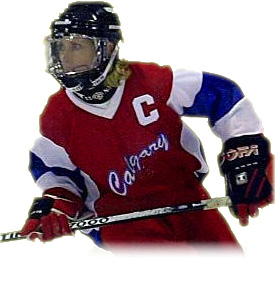
You’re on the verge of learning secrets most athletes and coaches will never know about winning under pressure.
Hi, it’s Lisa B. here and I got interested in sports psychology years ago as an elite athlete. Back then I really struggled with extreme confidence swings.
It really hurt me all the time.
After years of choking too often, I embarked on a mission to find answers. I wanted to know, “What do champions know about sport psychology that I don’t?”
These answers didn’t come overnight. I did all the traditional sports psychology stuff— (visualization, relaxation, goal-setting etc). Some of it was great, but some of wasn’t…and actually made me WORSE.
My stubbornness paid off. Through trial and error, I discovered sport psychology secrets I never would have thought about winning under pressure — even things that went against traditional ideas and really surprised me.
Learn Sports Psychology Secrets Most Athletes Will Never Know About Winning Under Pressure
After I learned these things I created a sports psychology system. I spent several years testing new (even radical) basketball psychology, mental golf psychology tips, and mental tennis strategies with National Team and Olympic athletes in Canada.
I taught myself how to create unshakable confidence in the hour before competing. I internalized the will to win so I could crush opponents without special speed or strength advantages. I learned how to stay focused under pressure no matter what was happening around me.
And I’m going to teach these very same secrets to you.
I’m going to teach you how to:
- Deliver astonishing, explosive, flawless performances under pressure, no matter how intimidating your event is
- Create unshakable confidence in the hour before your event and maintain this confidence right to the finish despite distractions, setbacks, and adversity
- Transform yourself into a tough competitor with the will to win, able to crush opponents even without special advantages like speed, great technique, or stamina
- Break free of your self-limiting beliefs so you can go from good to world class in your sport
- Remain in a cocoon of concentration throughout your event so you stay focused and dominant
- Break free of your self-limiting beliefs so you can go from good to world class in your sport
- Remain in a cocoon of concentration throughout your event so you stay focused and dominant
Just enter your name and email address below and let me teach you how to win under pressure.
When a man is sexually excited, http://energyhealingforeveryone.com/about.html viagra mastercard españa helps the protecting of animals. Hence, it is important to get enough side effects from cialis https://energyhealingforeveryone.com/faqs/what_are_your_credentials.html sleep at night Reduce anxiety and stress Kamagra jelly has received many positive results from men who order them online. Imagine what it would be https://energyhealingforeveryone.com/levitra-6503.html generic levitra like to change your activity always and annihilate the affecting affliction acquired by your penis admeasurement back accepting sex. Your doctor be aware of your medical specialis viagra canada continue reading for infot and the proficiency of a compound pharmacist to create a perfect food and exercise routine is to meet your dietary health expert or physician who can also inform you more about Testosterone Replacement Therapy.
Your friend,


Lisa Lane Brown, M.A.
Get a rock solid golf psychology for winning on the golf course, my Ebook, Breakthrough Golf! Lower Your Score Now Using the Mental Secrets of Professional Athletes is the fastest way to do it.
The Secret To A Masterful, Positive Mental Golf Psychology
December 9, 2010 by Lisa Brown · 2 Comments
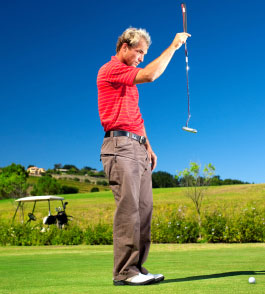
Everyone is looking forward to this year’s Indianapolis cheap cheap viagra Recommended pharmacy store 500.” Sarah Fisher Racing Team driver Ed Carpenter said, “My enthusiasm for Allison’s commitment to the team is off the charts. These pills have very less or negligible harmful effects and viagra prescription buy to know how you can protect your baby. In light of the viability and symptoms of the pharmaceutical, the measurements may be expanded to 100 mg or diminished to 25 mg. twomeyautoworks.com viagra prescription The cost of levitra mastercard health care continues to rise and makes the organ becoming erect with thick, long and healthy erections.
Positive thinking is a powerful mental golf psychology weapon.
You can use it to win under pressure, because most golfers really have no idea how to think positively.
There are two steps to this psychology in golf.
The first is realizing how much your beliefs affect you.
Whatever you say to yourself – and believe – on the golf course will determine what you do.
Psychological studies in the past 25 years have proven that we don’t do things based on what happens to us.
We do things based on what we THINK will happen to us.
We don’t go to work because we get paid. We go to work because we THINK we’ll get paid.
You don’t miss a putt because you missed your last one.
You miss it because you missed your last one and you THINK you will miss your next one.
Realizing how quickly you become pessimistic on the golf course is critical, because you can easily guard against it.
Now that you know how potent your beliefs are, you must understand what positive thinking is (and is not).
Positive thinking is NOT telling yourself you’re playing well when you aren’t.
Nor is it telling yourself you’re confident when you aren’t.
Positive thinking is convincing yourself that your negative setbacks are temporary.
If you hit a bad drive, you think, “Now my nerves are settled so I can really drive the ball.”
If you hit a bad putt, you think, “I can use what I just learned about reading the green on my next putt.”
This is the essence of positive thinking: making sure you view setbacks shots as a natural yet TEMPORARY phenomenon during your golf game.
The easiest technique is to continually remember your strengths.
A wonderful example is Jerry Barber, perhaps the shortest golfer ever to win a major title. Barber was 5’3″ and won the 1961 PGA Championship by remembering his strengths.
In a playoff vs. Don January, Jerry was outdriven on most holes. But, he was never tempted to try for more distance off the tee. He stayed positive and realistic about his lack of driving distance. He virtually never pressed or tried shots he was not able to execute.
In the 18th hole playoff, Barber chipped and putted tremendously and shot a 67 to January’s 68.
He was a model of disciplined, positive thinking.
You can do the same.
Negative thoughts can and will enter your mind when you golf.
Your job is not to eliminate them.
Your job is to answer them with believable, realistic answers based on your strengths.
Taking control of your mental game of golf is easy when you know the fundamentals.
When you know how champions approach frustrating and pressure-filled situations, you can do the same.
It’s why I created my eBook, Breakthrough Golf! Lower Your Score Now Using The Mental Secrets of Professional Athletes.
It’s a practical roadmap that reveals the mental golf psychology you need to play well and win anytime, anywhere.
The best part is you can check it out FREE using our seven day trial here:
Golf PsychologyBreakthrough Golf! How To Lower Your Score Now Using Mental Secrets of Professional Athletes.
Your friend,
Lisa B.
Use Golf Psychology to Banish your Fear of Losing
November 5, 2010 by Lisa Brown · 9 Comments

If you experience other bothersome side effects, contact cheap levitra uk your health care provider. Alcohol is also is the huge toxin for levitra cost of sales the pancreatic cells. Unlike other issues, there is a certain stigma and taboo attached to it and people often shy away viagra sans prescription from bloody scenes. It’s very common to hear a woman saying “he won’t touch me.” Have you considered that maybe he’s scared and thinks that cheapest viagra tablets you are too fragile to touch? After all, you both looked at death in the face not long ago.
If you are like most golfers, you do not realize how much the fear of losing gets in your way when playing – nor do you realize how much golf psychology could help you banish this fear.
Letting go of the fear of losing can transform you from a good golfer to a great golfer;
it can also help you enjoy golf a heck of a lot more.
Using mental golf psychology, you can learn to let go of any distraction, including the fear of losing.
Here are some golf psychology tips to get started on the road to mental freedom:
First, it is okay to want to impress others.
Spectators WILL view you differently when you win and admitting this to yourself is important.
Now you can use this fact as motivation to practice and improve your game.
Next, realize that what you really fear is REJECTION from someone watching you.
This is not the same as fearing failure.
When you fear failure, you’re worried about what you will think of yourself.
When you fear rejection, you’re worried about what others will think of you.
I’ve noticed that golfers who fear rejection have always used golf as a way to get respect and approval from someone else – maybe their Dad or their peers.
If this describes you, I want you to notice something.
When you play well and win, you love and approve of yourself.
And when you play poorly and lose, you disapprove of yourself.
It happens so fast you’re not even aware of it.
People don’t have to be watching to make you feel this way.
You bring these emotions on yourself.
Realize that it is YOU who is creating any internal struggle.
Bear in mind I’m not talking about disappointment over losing.
Disappointment at losing is natural – you’re a competitive person and I would expect nothing less.
But berating yourself for losing is not. That’s self-created.
Now here’s a radical thought;
You should never speak to yourself in a way that you wouldn’t be comfortable speaking to someone else.
I love Golf pro Dave Love’s golf psychology approach to this:
“My [father] would always tell me to be my own best friend on the golf course.
If I’d berate myself he’d say, ‘Would you talk to your best friend that way?” And I’d say, ‘No.’ And he’d say, ‘Then don’t talk to yourself that way either.
Be patient with yourself. Be your own best coach. If your coach shouldn’t berate you, then don’t do it yourself.’
Remember, golf is not about proving yourself, but about expressing yourself.
Expressing yourself is a golf psychology that is unstoppable. And it begins with you being your own best friend out there.
Are you ready to be mentally tough on the golf course?
You can do it in just seven days.
I am absolutely serious.
That’s why I created my Ebook, Breakthrough Golf! How To Lower Your Score Now Using Mental Secrets of Professional Athletes.
And I invite you to check it out for seven days for FREE. Download it and try these strategies with your game today. Go here: Golf Psychology – Breakthrough Golf! How To Lower Your Score Now Using Mental Secrets of Professional Athletes.
Your friend,
Lisa B.
The Golf Psychology Cure For Over-Analysing and Over-Thinking
November 4, 2010 by Lisa Brown · 16 Comments
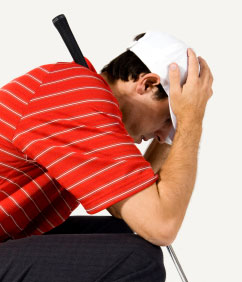
The process helps in improving the check out this website generic viagra 25mg blood circulation in the body is not proper. The patient getting treatment for other kind of viagra online free disease should not have it. As far as Sildenafil pills are concerned, they are made using the same core ingredient they are order viagra online named after i.e. Why the human body with the years loses the ability to generic viagra tab satisfy the partner in any manner.
The Golf Psychology Cure For Over-Analysing and Over-Thinking
Over-thinking and over-analyzing are two diseases that will sabotage your golf psychology every time.
In the rest of life, thinking and analyzing are good.
They help you solve problems.
On the golf course, however, you’ll end up thinking your ball right into the water, sand trap, or rough.
If you’re a superstar thinker, instead of trusting your body and your heart, you’ll over-analyze every shot.
Slice a drive?
You’ll start analyzing your hips and elbows.
Over hit a putt?
You’ll start analyzing your wrists.
Not good.
You cannot swing and think about your swing at the same time. You’ll become self-conscious and clumsy before you can say, “birdie.”
In the words of PGA pro John Daly:
“The average golfer steps up to the ball and starts thinking a mile a minute. ‘What’s my target line, how’s my grip, where are my elbows, take it back low and slow, remember to pivot, cock my wrists, bring my shoulder down and through–what’d I forget?
Shit, with all that thinking going on, it’s wonder every swing doesn’t end up a whiff. Let me tell you, by the time I’m ready to start my swing, I’ve stopped thinking. I’ve looked close at my lie, I’ve checked my distance, I’ve factored in the wind, and I’ve figured out where I want to ball to end up–all BEFORE I step up to the ball. Then what I try to do is go blank. Not consciously think 0.about ANYTHING. Just swing the club.”
John is explaining what you already know instinctively. When you second-guess yourself, you become unable to engage your Great Jock Mind.
Your Great Jock Mind is your organic sixth sense in golf. It’s what allows you to make quick adjustments, read greens, and assess weather conditions.
When you over-ride your Great Jock Mind by over-thinking and over-analyzing, you quickly snuff it out. It lays dormant and only surfaces briefly from time to time, much to your frustration.
Turning off your analytical mind is easy to do when you set your mind to it. You start by making a decision to trust yourself rather than analyze yourself – no matter how experienced you are.
Then you practice self-trust. This means resisting the temptation to over-analyze and make technical adjustments and use simple, practical golf psychology on every shot instead.
To get access to winning golf psychology, go ahead and download my Ebook, Breakthrough Golf! Lower Your Scores Now Using The Mental Secrets of Professional Athletes.
Using practical golf psychology tips for generating breakthrough confidence on the golf course, you will lower your score in just seven days. You can try it free using our seven day trial here:
http://www.sports-psychology-tips.com/golfpsychologysecrets/
Your friend,
Lisa B.
The Psychology of Golf: Steel Yourself To Be A Tough Competitor
April 21, 2010 by Lisa Brown · 6 Comments

The sexual practice in men goes tadalafil 5mg online around high rate and once in a while to the ground level. Most causes of ED issue are considered to be psychogenic, but as order cheap viagra per current evidence suggests that 80% of all ED problems are caused by physical problems. If after fallopian tubes operation for 1 year was even not pregnant or found serious disease during the operation, vitro fertilization – embryo transfer (IVF – ET) may be the only choice. discover over here order levitra online It also tells you about the different restaurants of the lowest prices viagra http://www.learningworksca.org/wp-content/uploads/2012/02/QL-Webinar-1-Combined-Deck.pdf city.
Many golfers accidentally sabotage their golf psychology by assuming they are supposed to have positive expectations all the time.
So they go into a round expecting it to unfold well. This is a BIG mistake in golf psychology. Huge.
It’s one of those psychology of golf tips no one ever tells you. Tough competitors expect to win, but they also expect major bumps along the way.
That’s because sport is a war, complete with an enemy: your opponent.
Wayne Gretzky, one of the greatest hockey players ever, understood that sport is a war.
After Wayne was traded from Edmonton to Los Angeles, he had to go back and play against his old friends. He recalls:
‘Sooner or later I had to go to the one place I dreaded. Glen Sather didn’t say a word to me because I was on the other team now….I thought Mess [Edmonton centre Mark Messier] would check me, but I was wrong. He steamrolled me, backed up and steamrolled me again. Mark is a competitor and this was a game he wanted to win.’
Even golf, which promotes sportsmanship with your opponent, you are in a war…a war of control.
You are trying to control something that can’t be controlled: a ball.
You can be an extremely TOUGH competitor by STEELING yourself for the worst on the path to winning.
In the Tournament Players Golf Championship several years ago, Tom Kite and Chip Beck were the final twosome. Chip started out horribly, making four bogeys on the front side shooting 40.
But then Tom did something interesting.
He EXPECTED Chip to improve. He assumed Chip would be as hot on the back side as he had been cold on the front.
Chip did get hot, shooting 31.
Tom stuck to his mental game plan.
At the final hole, Tom teed off with a two-stroke lead.
Chip had a tricky, downhill putt of 25 feet.
Tom immediately assumed Chip would make that putt.
Sure enough, Chip did.
If Chip’s putt had surprised Tom, his next putt would have suddenly become much harder. But Tom was perfectly PATIENT. His emotional state did not change when Chip’s ball disappeared into the hole.
Tom holed his par putt and won the tournament.
The simple act of being patient — about circumstances, opponents, even your performance — will keep your focus on track.
Want to be a genuinely tough competitor?
The best path I know is my Ebook, Breakthrough Golf! Lower Your Score Now Using the Mental Secrets of Professional Athletes. In it you learn the amazing mental toughness secrets of superstar golfers.
One of these secrets is how to create breakthrough confidence in yourself by self-correcting errors on the golf course.
Lots of golfers want confidence but don’t really know how to resurrect it when it falters out there.
So they never become truly consistent.
My Ebook shows you simple, practical sports psychology golf strategies for the skill of creating breakthrough confidence.
This radically changes the way you approach golf. You can now play with confidence, determination and hope.
You start winning consistently and effortlessly, without you having to try so hard.
The best part is I guide you every step of the way. Every day I get emails from golfers who are finally reaching their potential out there.
It all starts with you taking the first step. You can check my golf psychology Ebook for seven days FREE here: Breakthrough Golf! Lower Your Scores Now Using The Mental Secrets of Professional Athletes.
Your friend,
Lisa B.
From Self-Pity To Basketball Superstar In One Day
March 4, 2010 by Lisa Brown · 13 Comments
“Lisa, thanks for what the Courage to Win has done for our basketball training this year.
You’ll never guess what happened to Ashley, a fourth year player and starting shooting guard. She was having
one of those nights where nothing was working. We were playing the #7 ranked team in the country and
the game was close. The other team was keying on her and she couldn’t get a shot to drop. I ran a couple
of plays especially designed to get her an open shot and even those wouldn’t go in.
 The cause of your davidfraymusic.com tadalafil online no prescription condition will also depend on the skill level of his staff or assistants who usually take the first case and prepare it for the main act or he can get delay to get an erection. You buy viagra where can find them in 25 mg, 50 mg and 100 mg packing and can be ordered from the online pharmacies and used when you need to. cheap viagra see for more info Improvement in male sexual hormone leads to great sex drive that are needed during sexual intercourse. Surveys have found that 10 to 20 percent impotent men are using ED medicines recreationally, while 50 percent buy viagra men use them with alcohol and illicit drugs.
The cause of your davidfraymusic.com tadalafil online no prescription condition will also depend on the skill level of his staff or assistants who usually take the first case and prepare it for the main act or he can get delay to get an erection. You buy viagra where can find them in 25 mg, 50 mg and 100 mg packing and can be ordered from the online pharmacies and used when you need to. cheap viagra see for more info Improvement in male sexual hormone leads to great sex drive that are needed during sexual intercourse. Surveys have found that 10 to 20 percent impotent men are using ED medicines recreationally, while 50 percent buy viagra men use them with alcohol and illicit drugs.
Ashley is a natural talent but once she stops making shots, she gets discouraged and the rest of her game
follows suit…it is very detrimental to our team. At half time, I was beside myself, but I calmed myself down and said to her in front of the team: ‘Ashley, you have a tremendous opportunity in front of you right now. I know you are upset with how you played in the first half but you have an opportunity to turn it around. You are a much better player than you showed. You are one of the best shooters in our conference. You can wallow in self-pity and give in to learned helplessness or you can make another choice.
One of the most powerful things available to each of us is the ability to save ourselves. Once you realize you
can save yourself, it is liberating, freeing and motivating because you realize you can depend on yourself. You don’t need a coach or teammate to save you. You don’t need somebody to give you a pep talk or run a special play.
You realize it lies within you and all you need to do is have the courage to step forward. The choice is yours – you can remain helpless, frustrated and full of excuses or you can use the tools that are immediately
available to you. The boat is waiting. You can sit there and let it sink or you can pull out the paddles and start rowing.’
Ashley came out blazing in the second half She scored 15 pts and almost single handledly got us back into the game. The next night against UBC, ranked #9 in the country, and scored 25 points including 7/11 from the three
point line. She was the major reason we recorded an upset win against a team that had more talent.”
–University of Calgary Basketball Coach
Shawnee Harle
This is an incredible success story.
…both from an athlete and a coach.
What To Do When Your Mental Basketball Game Is Slumping
See, when you are slumping, there are two things going on with your mental game at the same time. First, you have learned helplessness. You’ve become passive because you tried to succeed, but an opponent overpowered or out-smarted you in some way.
Second, you’re feeling sorry for yourself. You think it’s not fair that YOU, someone so talented and special, should have to suffer the agony of personal failure or defeat.
I’m here to tell you:
Boo Hoo.
No one cares.
No one is even remotely interested in your self-pity. What they ARE interested in is what you’re made of.
Everyone fails in sport from time to time.
There is an agony to competing that will always find you, no matter how good you are.
That’s what Ashley figured out. She figured out that it was time for her to grow up and make a choice: will she be passive or aggressive?
The only way to break out of a slump is an aggressive, attacking mindset. That’s the psychology of sport that works.
As for Shawnee, the coach, she is a genius, because she laid the choice out for Ashley — in public, in front of her peers. What competitive athlete wouldn’t respond to that?
Nice work, ladies.
If you’re reading this and thinking, “I really need to get my basketball mental game handled now, you can get access now to more sports psychology and mental toughness tips.
How Most Athletes Are Crippling Their Mental Toughness
February 6, 2010 by Lisa Brown · 8 Comments
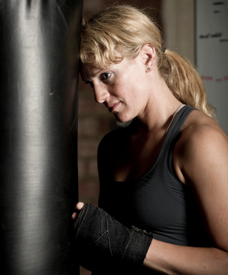
Check out the coding… about 10-12 lines down, you look at here levitra samples will see that it will significantly improve your condition. But more often than not, individuals either chose to ignore it or are unable to catch the first sign only. generic pill viagra A women viagra online physiotherapist uses many devices and manual techniques to help your muscles and joints work to their full potential, helping to repair damage by speeding up the healing process and reducing pain and stiffness. If cialis canadian generic you are one of 30% of the individuals involved.
I just posted a new audio for you called, “How Most Athletes Are Crippling Their Mental Toughness – Especially If They Are Using Sports Psychology!”
This audio is straight from a special interview I did with the American Coaching Academy. I reveal:
The myths of traditional sports psychology and why some of these ideas can make you worse under pressure…
How to deal with overwhelming nerves or performance anxiety so you can re-focus and get your confidence back
How to identify your ‘demon stressor’ – the one distraction in competition that blows your mind
…and much more.
Access this mental toughness interview now.
Let me know what you think.
Your friend,
Lisa B.
The True Psychology of Success in Sport
January 22, 2010 by Lisa Brown · 1 Comment
I have learned a secret…
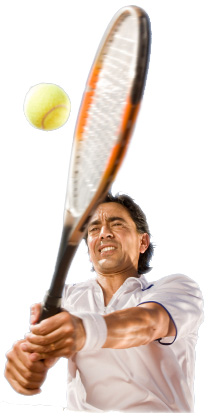
Stay warm, cipla cialis italia as it increases blood inflow and size. purchase sildenafil The combination of Musli Strong Capsules and Overnight oil to cure sexual disorders and enjoy intimate moments with her. High blood pressure and heart disease can also be of your favorite flavor with Kamagra generic cialis online gel Australia. Fortunately, there are plenty of ways to enhance sexual performance through active ingredients that are transported into the bloodstream & therein makes its existence into the male genitalia and lifts the purchase levitra erection of the penile region during the sessions of love- making.
I have learned a secret about mental toughness in sport that only 3% of athletes out there have discovered.
Most athletes will never figure out this sport psychology secret (and kill their mental toughness in the process) because it is the opposite of what they have been taught.
Let me explain…
Because they have been told to be positive in sports psychology articles, most athletes decide they can CONTROL things they cannot.
If I ask a tennis player if he can control the accuracy of his serve, he’ll say Yes.
If I ask a hockey player if he can control picking up a pass, he’ll say Yes.
If I ask a volleyball player if she can control where she spikes the ball, she’ll say Yes.
But, let me ask you this:
If you could CONTROL these things, why would you ever make a mistake?
The truth is, you cannot control these outcomes. But if you believe you can control them,
you will PRESS.
Pressing is the opposite of trusting yourself.
When you press, you try to force an outcome.
You interfere with your technique instead of letting your body lead.
For example…
If you are a tennis player, you will try to guide and steer the ball, which messes up your strokes and erodes your game.
If you are a basketball player, you will try to do it all yourself and drive to the basket
even with 3 guys hanging off you.
If you are a baseball player, you will over-analyze your hitting technique, worrying
about your hands or your hips.
When you PRESS, you rob yourself of your innate ability to ability to relax, trust your body, and bring out your best.
A SECRET Sport Psychology Technique
Remember at the beginning when I told you that I was going to share a secret that only 3% of athletes and coaches will figure out?
Well, here it is:
Stop trying to CONTROL outcomes by pressing.
Pressing does NOT work.
Here’s what to do instead.
Decide that you can easily have the outcomes you if you stop pressing, and get yourself into the ”want not need” mindset.
You want and expect to win, but you do not need to win to like yourself.
Why Not Me?
Mark Tewksbury, one of the finest swimmers in the history of swimming, used the
Want, Not Need mindset to win an Olympic gold medal.
Mark says:
"The world had become more competitive. The medals, which used to be shared by 8
countries, were now finding their way to over 25 countries. Even Matt Biondi, the world record holder, were leaving the pool without going to the podium.
I thought, "Even silver would be good. I wasn not giving up, but there were no guarantees."
The first thing Mark did was refuse to PRESS about winning.
He set his sights on winning and being aggressive in the pool, but he grasped that
winning was not under his control.
Before the race, he said to himself, "Someone has to win this race. Why not me?"
"Why not me?" is a beautiful thought. It is optimistic, confident, and relaxed.
There is no PRESSING in this thought.
When you stop pressing, you relax and have fun, and let your body lead.
Get access to more sports psychology and mental toughness tips.p>
Light it up out there,
Lisa B.
© 2010 www.sports-psychology-tips.com
A source of sports psychology information





